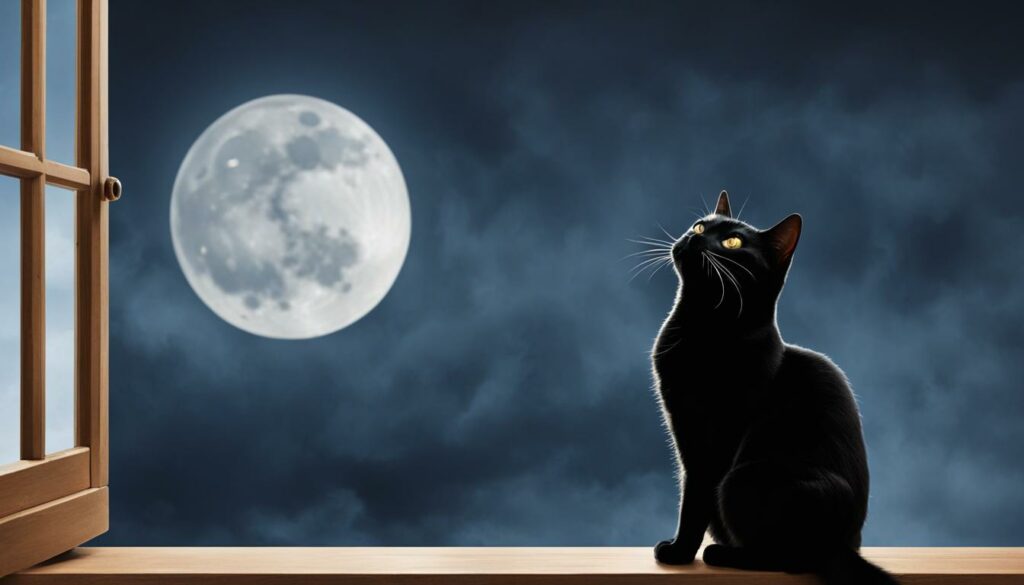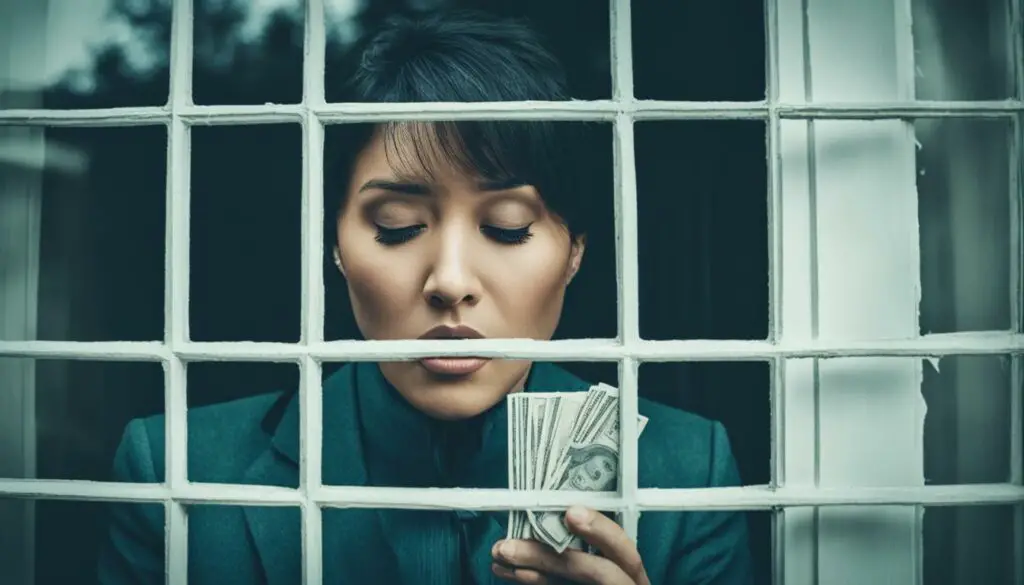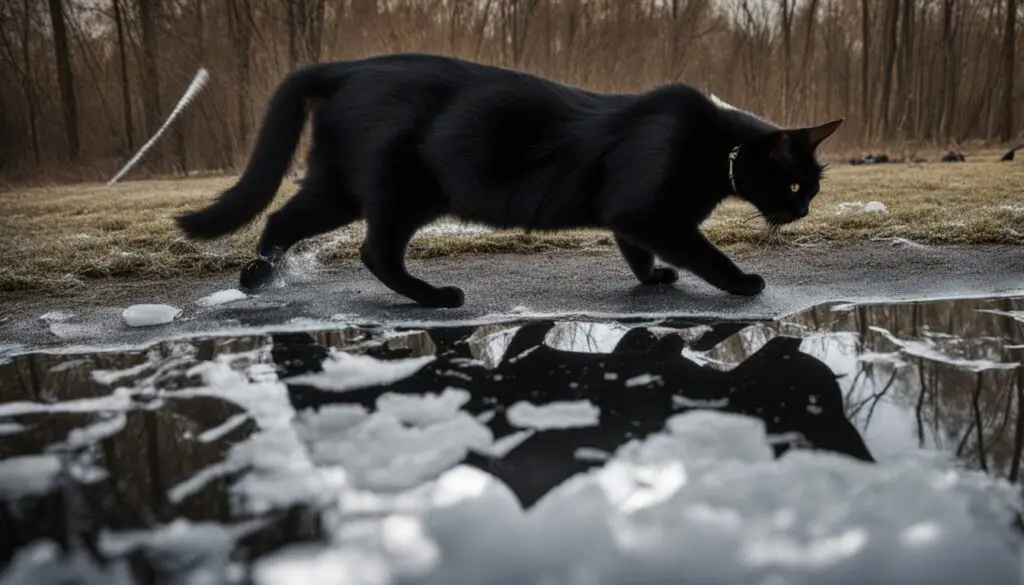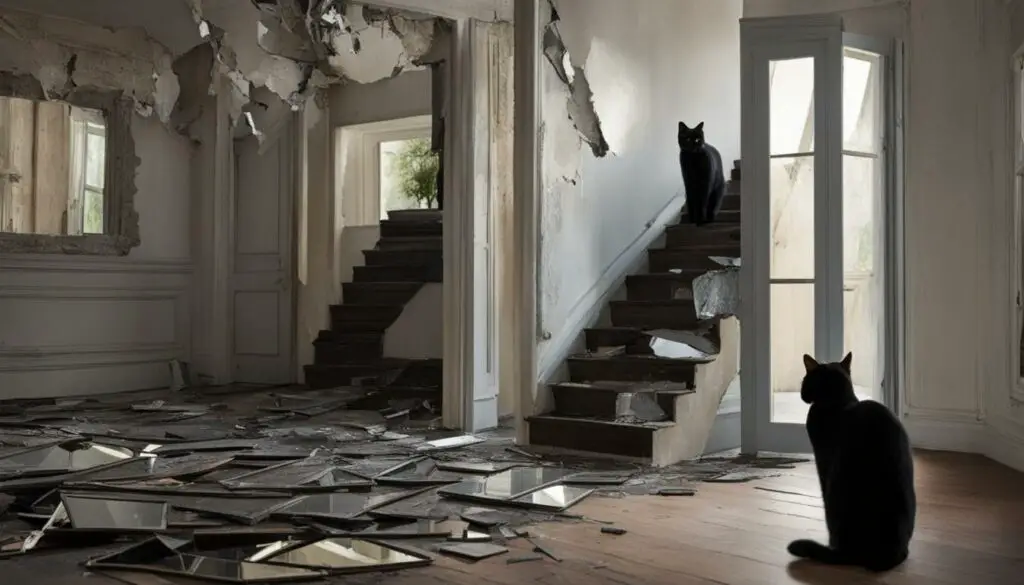Originally posted on January 1, 2024 @ 5:30 am
Whistling indoors has long been associated with bad luck and superstitions in various cultures. While these beliefs may differ from one culture to another, the common thread is the notion that whistling inside the house can bring about negative outcomes or attract evil spirits. Let’s explore the origins and consequences of this belief in different parts of the world.
Key Takeaways:
- Whistling indoors is believed to bring bad luck and negative consequences in many cultures.
- Superstitions about whistling indoors vary across different countries and regions.
- Cultural beliefs surrounding whistling inside often involve the presence of evil spirits.
- In some cultures, whistling at night is believed to attract shapeshifters or spirits.
- Superstitions about whistling indoors can have financial implications in certain cultures.
Superstitions about Whistling Indoors

Superstitions surrounding whistling in the house vary across cultures. In Russia and the Baltic states, it is believed that whistling indoors can bring financial loss and bad luck. This belief extends not only to one’s own house but also to whistling in someone else’s home. According to these superstitions, whistling is seen as the language of evil and can unintentionally invite negative spirits into the home. However, it is important to note that whistling outdoors is generally not considered to be associated with any negative outcomes.
Beliefs about whistling in the household have been deeply rooted in cultural customs and traditions. While these superstitions may seem irrational to some, they have played a significant role in shaping the way people interact with their living spaces. Whether it’s preventing financial loss or avoiding the wrath of evil spirits, these beliefs continue to hold sway over the actions and behaviors of many individuals.
Traditional Customs and Myths
Different regions have developed their own traditional customs and myths regarding indoor whistling. Let’s take a closer look at a few examples:
| Region | Belief |
|---|---|
| Russia | Whistling indoors is believed to bring financial loss and attract bad luck. It is considered the language of evil. |
| Baltic states | Similar to Russia, whistling indoors is associated with financial loss and inviting negative spirits. |
| Native American tribes | Whistling at night is believed to attract shape-shifting spirits known as “Skinwalkers” or “Stekinis.” |
These traditional customs and myths often serve as cautionary tales, guiding individuals in their daily lives to avoid potential harm or misfortune.
Cultural Beliefs on Whistling Indoors

Whistling indoors is not only viewed negatively in Russian and Baltic cultures. In Native American tribes, there is a belief that whistling at night can attract shapeshifters or spirits that can transform into various animals or even humans. These beings, often referred to as “Skinwalkers” or “Stekinis,” are believed to whistle back if someone whistles at night. The fear of encountering these entities has led to cautionary tales being passed down through generations, warning individuals to avoid whistling at night for their own safety.
Native American Whistling Beliefs
In Native American folklore, whistling indoors at night is believed to invite supernatural entities into the home. These beings possess the ability to change their form, often appearing as animals or humans. Known as “Skinwalkers” or “Stekinis,” they are feared for their mischievous and malevolent nature. If someone whistles at night, these spirits are said to respond with their own whistle, drawing closer to the source of the sound. This belief has instilled a deep cultural fear of whistling at night among Native American tribes.
“Whistling at night is like an invitation to the Skinwalkers. You don’t want to cross paths with them, so it’s best to avoid whistling indoors when the sun goes down.” – Elder from the Navajo tribe
The Power of Cultural Beliefs
Cultural beliefs surrounding whistling indoors illustrate the significant influence of superstitions on daily life. While these beliefs may seem irrational to some, they are deeply ingrained in the cultural fabric of certain communities. Whistling at night is not merely seen as a harmless act, but as a potential encounter with supernatural beings that can bring harm or misfortune. These beliefs serve as a cautionary reminder to respect cultural customs and traditions.
Consequences of Whistling at Night
According to Native American folklore, the consequences of whistling indoors at night can be severe. Encountering a Skinwalker is believed to bring bad luck, illness, or even death. These entities are often associated with negative events and are considered powerful and unpredictable. By avoiding whistling at night, individuals hope to steer clear of any potential encounters with these mysterious and potentially dangerous beings.
| Cultural Beliefs | Consequences of Whistling Indoors at Night |
|---|---|
| Native American | Attracting shapeshifters or spirits that can transform into various animals or humans |
| Russian and Baltic | Financial loss and bad luck |
| Greek | Financial hardship and bad luck |
These cultural beliefs surrounding whistling indoors reveal the complex tapestry of human superstitions and the role they play in shaping our perceptions and behaviors.
Whistling and Its Financial Consequences

The belief that whistling in the house can lead to financial loss or bring about bad omens is widely held in different cultures. In Greece, it is customary to keep a few coins in the wallet to ensure that it never remains empty. Many Greeks believe that allowing one’s bank balance to reach zero can attract bad luck. Similarly, in the Philippines, sweeping the floor at night is discouraged as it is believed to bring bad fortune and potentially harm one’s financial prospects.
On the other hand, scattering coins around the living room during a housewarming party is seen as a way to attract wealth and success to the new occupants.
| Country | Superstition |
|---|---|
| Greece | Keeping coins in the wallet to ward off financial loss |
| Philippines | Avoiding sweeping at night to prevent bad fortune |
| Global | Scattering coins during a housewarming party for prosperity |
Despite the lack of scientific evidence, these cultural beliefs regarding the consequences of whistling indoors continue to shape the customs and practices of various communities.
Whistling Superstitions around the World
The superstitions surrounding whistling indoors are not confined to just Russian and Native American cultures. Different beliefs and traditions from around the world contribute to the diverse views on whistling in the house.
In the UK, it is a tradition to hammer coins into trees, a practice believed to bring good luck and prosperity. This act is seen as a way to make an offering to the tree spirits, inviting their blessings and abundance.
Similarly, in Japan, carrying origami frogs in the wallet is thought to attract wealth and good fortune. The wordplay between the Japanese word for frog and the verb “to return” reinforces the belief in the frogs bringing back money and prosperity.
Turkish superstition provides an interesting contrast. According to this belief, if your right palm starts itching, it signifies incoming money, while an itchy left palm indicates financial loss. This belief reflects the cultural significance of palm itchiness as a sign of financial fortune or misfortune.
These different beliefs and traditions highlight the rich tapestry of cultural customs regarding indoor whistling. They not only add depth to the superstitions associated with whistling but also showcase the diverse ways in which people around the world seek to attract luck and prosperity into their lives.
Whistling Superstitions around the World
| Country/Region | Superstition |
|---|---|
| UK | Hammering coins into trees for good luck and prosperity |
| Japan | Carrying origami frogs in the wallet to attract wealth and good fortune |
| Turkey | Itchy right palm signifies incoming money, itchy left palm indicates financial loss |
Exploring the Origins of Whistling Superstitions

The origins of whistling superstitions can be traced back to ancient folklore and traditional cultural beliefs. These beliefs have evolved over time and have become deeply ingrained in various societies. Let’s delve into a few examples that shed light on the origins and significance of these superstitions.
Greece: The Curse of an Empty Purse
In Greece, the superstition known as “the curse of an empty purse” highlights the connection between money and luck. It is believed that an empty wallet or purse invites bad luck and financial difficulties. To ward off misfortune, many Greeks keep a few coins in their wallets, emphasizing the belief that money attracts money and ensures financial abundance.
The UK: Coins in Trees
Another intriguing superstition is practiced in the UK, where it is believed that hammering coins into trees can bring good luck and even cure illness. This tradition is said to have originated as a symbolic act of offering to the spirits or nature itself, seeking blessings, and promoting good health.
Japan: Origami Frogs and Wealth
“Kaeru,” the Japanese word for frog, sounds similar to the verb “kaeru,” which means “to return.”
In Japanese superstition, the connection between origami frogs and wealth is rooted in this linguistic wordplay. Carrying folded paper frogs in wallets or purses is believed to attract financial prosperity and symbolizes the return of wealth to the individual.
Whistling Superstitions Origins
| Country | Superstition | Origin |
|---|---|---|
| Greece | The Curse of an Empty Purse | Belief that money attracts money |
| The UK | Coins in Trees | Symbolic offering for blessings and good health |
| Japan | Origami Frogs and Wealth | Wordplay between “kaeru” (frog) and “kaeru” (to return) |
The Power of Superstitions in Daily Life

Superstitions hold significant power in shaping daily life and influencing behaviors. Whether it’s avoiding whistling in the house or following other traditional customs, these beliefs often dictate actions and decisions. By adhering to these superstitions, individuals hope to avoid negative outcomes and attract good luck and prosperity. Despite the lack of scientific evidence supporting these beliefs, they continue to hold a strong influence over cultural practices and customs.
Superstitions surrounding whistling indoors reflect deeply ingrained cultural beliefs that have been passed down through generations. These beliefs serve as a guide for individuals to navigate their lives, offering a sense of control and assurance in an unpredictable world. The impact of superstitions on daily life can be seen in various aspects, from simple actions like avoiding whistling inside to complex rituals and practices.
One of the most common superstitions regarding indoor whistling is the belief that it can bring about bad luck or attract negative spirits. In many cultures, whistling inside the house is viewed as a way to communicate with the supernatural realm and can potentially invite malevolent entities into the home. These beliefs often lead individuals to refrain from whistling indoors, as a precautionary measure to protect themselves and their families from harm.
Another aspect of the power of superstitions lies in the way they shape decision-making processes. For example, in some cultures, it is believed that whistling in the house can lead to financial loss. This belief influences individuals’ financial behaviors, prompting them to take precautions such as carrying coins or avoiding certain activities to safeguard their wealth.
The cultural significance of superstitions related to whistling indoors cannot be understated. These beliefs influence not only individuals but also communities as a whole, as they become an intrinsic part of traditional customs and practices. They contribute to the preservation of cultural identity and serve as a way to pass down values and beliefs to future generations.
While the lack of scientific evidence may lead some to dismiss superstitions as baseless beliefs, it is important to recognize the role they play in shaping cultural practices and customs. Superstitions provide individuals with a sense of comfort and control, offering explanations for the unknown and a way to mitigate potential risks. In this way, they serve as a reflection of human nature’s desire for order and understanding in an unpredictable world.
Exploring the power of superstitions provides valuable insights into the human psyche and the diverse ways in which cultures navigate the complexities of everyday life. It reminds us of the rich tapestry of beliefs and traditions that shape our world, offering a glimpse into the fascinating intricacies of cultural diversity.
Debunking Whistling Superstitions

While superstitions surrounding whistling in the house may have deep cultural roots, it is important to approach them with a level of skepticism. Many of these beliefs lack scientific evidence and are based on folklore and traditions. Whistling itself is a common form of self-expression and communication in many cultures and does not inherently carry negative connotations. It is essential to critically examine these superstitions and consider them within the cultural context in which they arise.
Whistling superstitions often arise from ancient folklore and traditional customs passed down through generations. However, it is important to note that folklore is not synonymous with fact. These superstitions are based on beliefs and interpretations that may not align with our modern understanding of the world. Whistling indoors does not bring about bad luck or attract evil spirits.
While some cultural beliefs may associate whistling in the house with financial loss or other negative consequences, it is important to question these beliefs and seek rational explanations. For example, in Greek culture, it is believed that an empty purse can attract bad luck. However, this belief can be attributed to the idea that individuals who are financially responsible and proactive will have a better chance of avoiding financial difficulties. It is not the act of whistling itself that brings about negative outcomes, but rather the association between whistling and other beliefs or practices.
“Whistling in the house is often viewed as a language of evil, inviting negative spirits into the home. However, this belief is not supported by scientific evidence and is based on cultural interpretations.”
Whistling is a natural behavior that humans engage in as a means of self-expression, celebration, or even to pass the time. It has no inherent power to attract evil or cause harm. In fact, whistling can be a source of joy, creativity, and cultural expression. It is important to separate fact from fiction and approach whistling with an open mind.
Exploring the Origins of Whistling Superstitions
The origins of whistling superstitions can be traced back to ancient folklore and cultural traditions. These beliefs were often created as a way to explain or understand certain phenomena or as cautionary tales to guide behavior. For example, the Native American belief in shapeshifters or spirits that can transform into animals or humans stems from a fear of the unknown and a desire to protect oneself.
Origins of Whistling Superstitions:
| Culture | Belief |
|---|---|
| Russian and Baltic Cultures | Whistling indoors can bring financial loss and bad luck. |
| Native American Tribes | Whistling at night can attract shapeshifters or spirits. |
| Greek Culture | An empty purse can attract bad luck. |
| Philippine Culture | Sweeping the floor at night brings bad fortune. |
It is important to recognize the cultural context in which these beliefs arise and respect the diversity of beliefs around the world. While it’s fascinating to explore the origins of these superstitions, it is equally important to critically analyze and question their validity in our modern world.
Superstition or Personal Belief?
The distinction between superstitions and personal beliefs is often blurred. While superstitions are deeply ingrained in cultural practices and are shared by a group, personal beliefs can vary from individual to individual. Some individuals may personally believe in the consequences of whistling in the house, while others may view it as a mere superstition. It is essential to respect and understand diverse perspectives while navigating the complexities of cultural beliefs and customs.
The Fine Line between Superstitions and Personal Beliefs
When it comes to whistling indoors, there is a delicate balance between widely held superstitions and personal beliefs. Superstitions, rooted in cultural customs, shape the collective mindset of a group and can influence behavior and decision-making. Personal beliefs, on the other hand, are subjective and can vary based on individual experiences and interpretations.
For example, in some cultures, it is believed that whistling inside the house can bring bad luck or financial loss. This belief is shared by many and ingrained in the cultural fabric. However, within this cultural framework, there are individuals who may personally believe in the consequences of whistling indoors, while others may dismiss it as a mere superstition.
The Influence of Cultural Beliefs
Cultural beliefs play a significant role in shaping the way individuals perceive and interpret the world around them. They provide a framework for understanding and navigating everyday life. Superstitions, often deeply rooted in cultural traditions, reflect the collective wisdom and experiences of a community.
When it comes to whistling indoors, cultural beliefs can create a sense of fear or caution. Individuals who hold these beliefs may avoid whistling in the house out of respect for their cultural heritage and an underlying belief in the potential consequences. Others may simply adhere to these superstitions as a way to align with their community’s traditions.
Respecting Diverse Perspectives
Understanding and respecting diverse perspectives is crucial when it comes to superstitions and personal beliefs. While some individuals may dismiss superstitions as irrational, it is important to recognize that they hold significance for others. By appreciating cultural differences and the multifaceted nature of beliefs, we can foster mutual understanding and create an inclusive environment.
“Superstitions and personal beliefs are intricately woven into the fabric of our cultural heritage. They provide a sense of identity, belonging, and guidance. By acknowledging and respecting these beliefs, we can embrace the richness and diversity of human experiences.”
The Importance of an Open Mind
When navigating the complexities of cultural beliefs and customs, it is essential to approach them with an open mind. Recognizing that superstitions and personal beliefs are deeply ingrained in individuals and communities allows for empathy and understanding. It also provides an opportunity for dialogue and the exchange of ideas.
While some may find comfort in superstitions, others may question or challenge them. Both perspectives are valid and contribute to the collective tapestry of human beliefs. By fostering open-mindedness and curiosity, we can engage in meaningful conversations and bridge cultural gaps.
Embracing the Diversity of Beliefs
Superstitions and personal beliefs add depth and richness to our collective cultural heritage. They reflect our shared humanity and provide insight into the diverse ways in which we make sense of the world. Instead of dismissing or invalidating certain beliefs, we should celebrate the diversity of perspectives and the stories they encompass.
Embracing the diversity of beliefs means acknowledging that the line between superstitions and personal beliefs is fluid. It means understanding that what may be a superstition to one person may hold personal significance and authenticity to another.
As we explore the fascinating world of whistling indoors and the beliefs surrounding it, let us approach the subject with openness, respect, and a willingness to learn from one another. By doing so, we can foster a climate of inclusivity and appreciation for the tapestry of beliefs that define our shared existence.
| Belief | Description |
|---|---|
| Superstitions | Deeply ingrained in cultural practices and shared beliefs of a group |
| Personal Beliefs | Subjective and vary from individual to individual |
| Cultural Beliefs | Shape perceptions and behaviors within a cultural framework |
| Respecting Diverse Perspectives | Understanding and appreciating different beliefs and traditions |
| The Importance of an Open Mind | Approaching beliefs with curiosity, empathy, and willingness to learn |
| Embracing the Diversity of Beliefs | Celebrating the richness and authenticity of varied perspectives |
Conclusion
Whistling superstitions have captivated cultures around the world, each with its own unique interpretation of the belief system. While the origins and details may vary, the common thread is the association of whistling in the house with bad luck or negative consequences. These beliefs continue to hold significant influence over cultural practices and customs, despite the absence of scientific evidence supporting them.
However, it is crucial to approach these superstitions with skepticism and critical thinking. Whistling itself is a form of self-expression and communication found in many cultures, devoid of any inherent negative connotations. By understanding the diverse perspectives and cultural contexts in which these beliefs arise, we can appreciate the richness and diversity of global superstitions.
Debunking these myths and exploring the reasons behind these superstitions allows us to challenge long-held beliefs and embrace a more rational and evidence-based approach. While it is important to respect cultural practices and customs, it is equally essential to scrutinize and question the basis of these beliefs. By doing so, we can gain a deeper understanding of the human desire to find meaning and control in a world filled with uncertainties. Whistling in the house is considered bad luck in many cultures due to superstitions that associate it with attracting negative outcomes or evil spirits. Superstitions surrounding whistling in the house include beliefs about bad omens, financial loss, attracting shapeshifters or spirits, and impacting one’s financial prospects. Yes, different cultures hold various beliefs about whistling indoors, such as considering it the language of evil or connecting it to folklore and traditions. Consequences associated with whistling indoors can range from financial loss to attracting negative spirits or bad luck, according to certain cultural beliefs. Traditional customs related to indoor whistling vary across cultures, such as keeping coins in a wallet for financial protection or avoiding sweeping the floor at night to prevent bad fortune. Myths surrounding whistling in houses include beliefs that it can bring financial loss, attract evil spirits, or impact one’s financial stability or prospects. Whistling superstitions have ancient roots in folklore and traditions. For example, the belief in the curse of an empty purse in Greece emphasizes the connection between money and luck. Superstitions, including those related to whistling in the house, shape behavior and influence decisions as individuals hope to avoid negative outcomes or attract good luck and prosperity. Many whistling superstitions lack scientific evidence and are based on folklore and traditions. Critical examination is necessary to understand these beliefs within their cultural context. The distinction between superstition and personal belief can vary. While superstitions are shared cultural practices, personal beliefs can differ among individuals. It’s important to respect diverse perspectives.FAQ
Is it bad luck to whistle in the house?
What are some common superstitions about whistling indoors?
Are there cultural beliefs associated with whistling indoors?
What are the consequences of whistling inside?
What are some traditional customs regarding indoor whistling?
What are some myths about whistling in houses?
What are the origins of whistling superstitions?
How do superstitions impact daily life?
Are there scientific explanations to debunk whistling superstitions?
Is the belief about whistling in the house a superstition or a personal belief?


